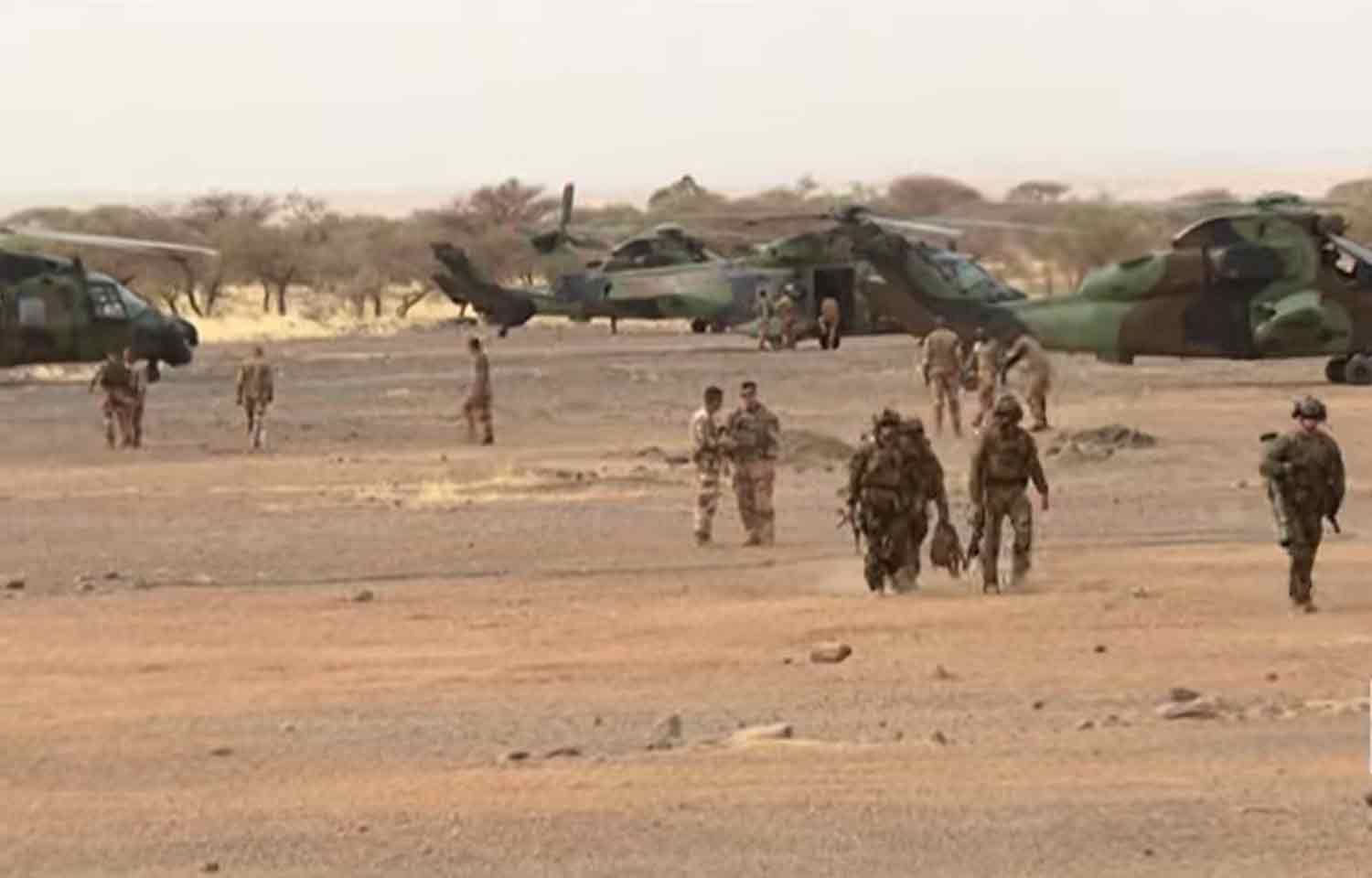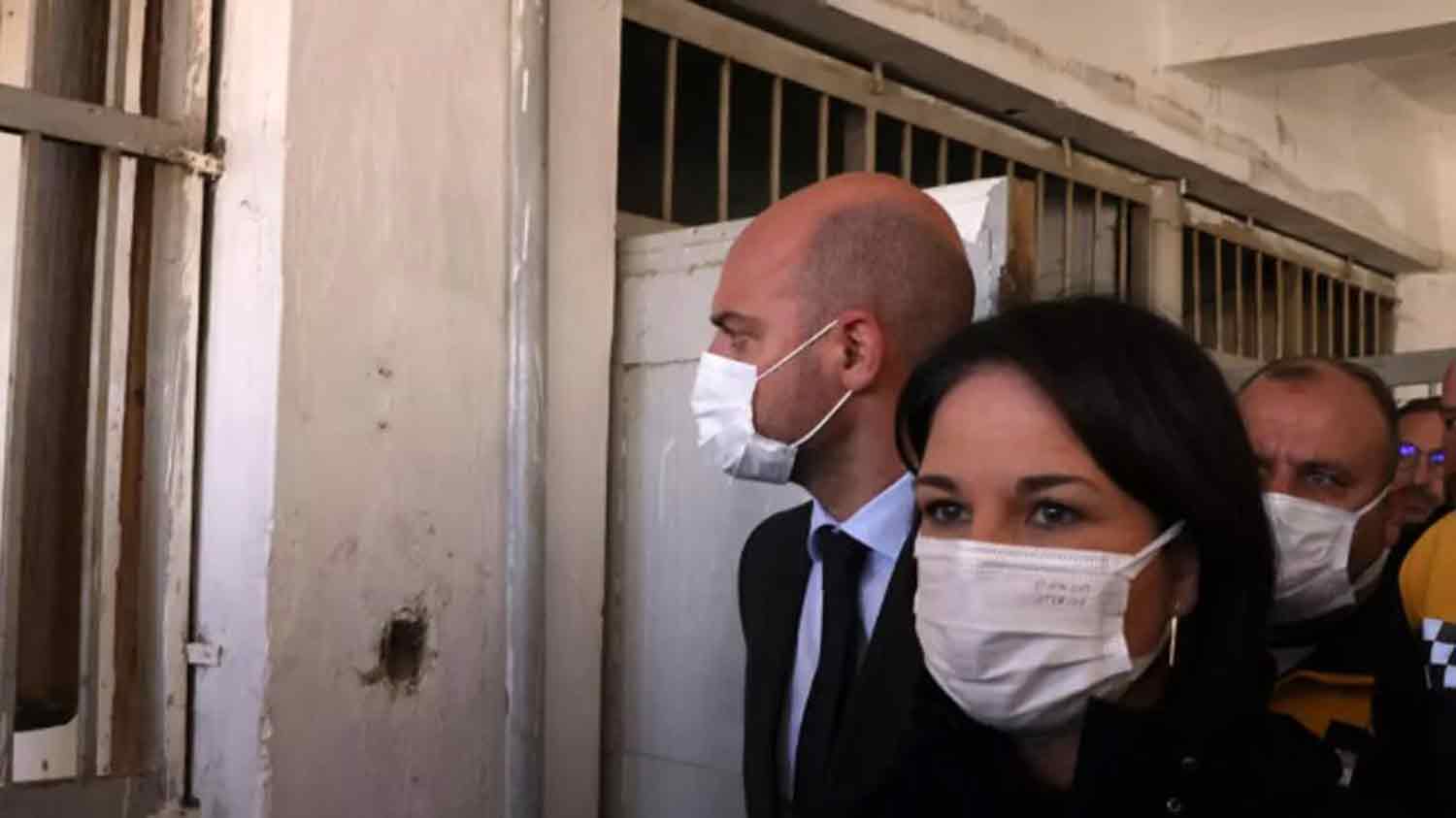French forces are set to commence their withdrawal from Ivory Coast in January, as announced by President Alassane Ouattara on Tuesday. This decision signifies another phase in the military retreat of the former colonial power from West Africa.
During a televised address marking the end of the year, Ouattara attributed the withdrawal to the enhanced military capabilities of Ivory Coast.
“We take pride in our army, which has now completed its modernization,” he stated. “In light of this, we have opted for a coordinated and organized withdrawal of French forces.”
According to Ouattara, approximately 600 soldiers from the 43rd BIMA marine infantry battalion, stationed in the Port-Bouet suburb of Abidjan, will transfer control of their base to Ivorian forces within this month.
A gradual transition
In recent years, several former French colonies have witnessed military coups, including two in Mali within a year (August 2020 and May 2021), as well as coups in Burkina Faso in 2022 and Niger in 2023.
French troops completed their withdrawal from Mali, Burkina Faso, and Niger in 2022 and 2023 after military juntas in these nations terminated defense agreements with France. This shift was accompanied by a surge in anti-French sentiment and a move towards new alliances, particularly with Russia.
The last French forces departed from Mali and the Central African Republic in 2022, followed by their exit from Burkina Faso in 2023. France also began withdrawing aircraft and troops from Chad at the end of 2024 after the military leadership there severed military relations. Senegal made a similar request in November, which was formalized in the new year.
Senegalese President Bassirou Diomaye Faye presented his country’s future plans during a New Year’s address, announcing that all foreign military personnel would begin to withdraw in 2025.
“I have directed the minister of armed forces to develop a new framework for defense and security cooperation, which will include the cessation of all foreign military presence in Senegal starting in 2025,” Faye stated.
Elected in March on a platform advocating for sovereignty and diminished foreign reliance, Faye indicated that Senegal’s future alliances would be restructured accordingly.
In contrast to the ideological shifts seen in Mali, Burkina Faso, and the Central African Republic, where ties with France have been severed in favor of partnerships with Russia and the Wagner paramilitary group, Senegal and Ivory Coast have opted for a more cooperative stance. Faye highlighted in his address that the withdrawal of foreign troops does not equate to a total severance from established partnerships.
“All of Senegal’s allies will be regarded as strategic partners, fostering an environment of open, diverse, and unrestricted cooperation,” he remarked.
Ouattara, regarded as one of France’s key allies in the region, has managed to balance his relationship with Paris while addressing the increasing domestic demands for Ivorian autonomy.
“There is a significant distinction between the circumstances in the Sahel nations, where military coups have occurred. In Mali, Burkina Faso, and Niger, these countries have shifted their allegiance towards Russia, seeking to sever military ties with France, largely for ideological reasons,” explained Paul Melly, a consulting fellow for the Africa programme at Chatham House.
“In contrast, nations like Ivory Coast, Senegal, Chad to a certain degree, and Gabon, where French military presence has been established, exhibit a different dynamic. The governments generally maintain a friendly stance towards France, yet they are acutely aware of the mounting public pressure, which suggests that the era of having a substantial foreign military presence from the former colonial power is no longer suitable,” Melly continued.
Strategic Adjustments
As France’s influence in Africa has diminished in recent years, its military approach has evolved towards partnerships focused on technical assistance and training.
Jean-Marie Bockel, the special envoy to Africa for President Emmanuel Macron, presented a report in November regarding the transformation of France’s military role on the continent. Although the report remains confidential, the Elysée Palace indicated in a press release that it proposed a “renewed” and “co-constructed” partnership with African countries.
“The recommendations align with the intention to establish a refreshed defense partnership that addresses the needs articulated by our partners and is collaboratively developed with them, while fully honoring their sovereignty,” the presidency stated.
According to sources cited by AFP, the report indicated that there would be considerable decreases in troop numbers at French military installations in Africa. In the last ten years, France has been compelled to withdraw from over 70 percent of the African countries where it once had a military presence. Currently, French forces are primarily stationed in Djibouti, where there are 1,500 personnel, and in Gabon, which hosts just over 350 troops.
For our partners, the focus for the future is not on the sheer number of troops. What is essential is having the right personnel to ensure effective operations. The key lies in the quality of the partnership we will cultivate together for the future, Bockel stated in an interview with FRANCE 24.
Regional implications
France’s troop withdrawals have faced backlash from several African nations. Mali, Burkina Faso, and Niger have accused the French government of trying to disguise its “neocolonial tendencies.”
In a joint statement issued in late December, the military leaders of these nations characterized the closure of French military bases as a form of “deception” intended to “execute destabilizing actions.”
“The French imperialist regime, sensing its interests are at risk, with the backing of certain regional leaders, is making desperate attempts to halt the progress of emancipation,” they asserted.
In remarks to the New York Times on Wednesday, a spokesperson from the French defense ministry emphasized that the troop withdrawal does not undermine the strong bilateral military relationship. The spokesperson further noted, “The cooperation framework between the two armed forces remains intact, founded on mutual trust and a rich history of operational collaboration.”
France will persist in its efforts to address terrorism emanating from the Sahel region to the coastal nations of West Africa, including Ivory Coast, despite the withdrawal of troops. In 2021, France and Ivory Coast established a counter-terrorism academy in Abidjan aimed at strengthening regional capabilities to combat the escalating threat posed by Islamist militants.
As French forces prepare for their exit, Ivory Coast and Senegal join a growing list of African countries reassessing their relationships with France, whose influence in Africa has been diminishing since the early 1960s.
“There is an acknowledgment in Paris, and especially among African governments, that public sentiment has shifted,” Melly noted.
“People believe it is time for change.”
Discover more from Defence Talks | Defense News Hub, Military Updates, Security Insights
Subscribe to get the latest posts sent to your email.





